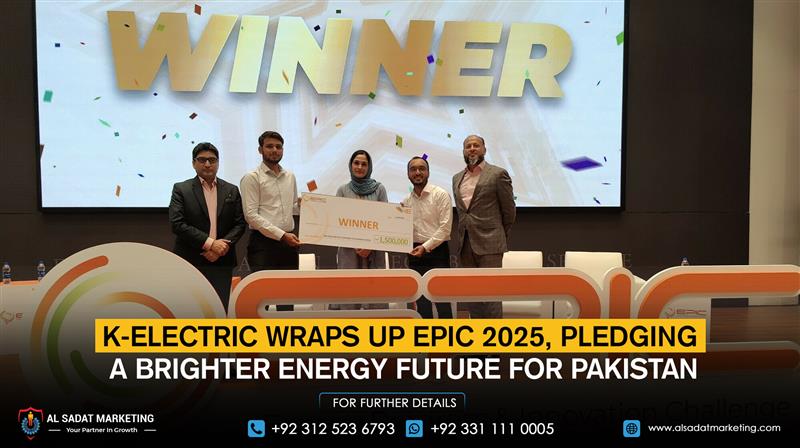K-Electric (KE) concluded the Grand Finale of the Energy Progress & Innovation Challenge (EPIC) 2025, reaffirming its commitment to promoting localisation and innovation in Pakistan’s energy sector. The event marked the culmination of a nationwide competition aimed at driving breakthrough ideas to tackle energy challenges.
Out of over 250 applications received since the launch of EPIC in March 2025, 10 finalists were selected to pitch their innovations at the finale. The top three winners were awarded PKR 1.5 million, PKR 1 million, and PKR 750,000, respectively.
The first prize was secured by a team from NUST, led by Abdul Hadi and Syed Abdul Haseeb Ali, for developing a tamper-proof PMT-based load shedding solution. Government College University Faisalabad’s team, led by Dr Abdul Rauf Bhatti and Tallataf Rasheed, took second place with their project on automation of demand forecasting using artificial neural networks. The third prize went to NED University students Shariq Shaikh, Sohaibuddin, M. Waleed, and Mubashir Ali for creating an optimised AI model for accurate electricity demand forecasting.
The winners were selected by a distinguished panel of jurors, including industry leaders such as Maha Qasim, Shehryar Omar, Shehryar Hydri, Amir Iqbal, Tara Uzra Dawood, Inam ur Rehman, Shaista Ayesha, Sheikh Imran ul Haque, Jehan Ara, Nadeem Shaikh, and Syed Azfar Hussain.
KE CEO Moonis Alvi stated that EPIC 2025 exemplifies the utility’s commitment to shaping the future of energy through innovation. He emphasized the need for scalable, long-term solutions as energy demands continue to grow. Sadia Dada, KE’s Chief Distribution & Marcomms Officer, added that EPIC is more than a competition—it is a movement to drive action and scale solutions that enhance reliability, sustainability, and accessibility in the power sector.
EPIC 2025 has positioned itself as a premier innovation platform by bringing together academia, startups, and industry experts to address pressing energy challenges. Finalist projects included AI-based forecasting tools, IoT-driven theft detection, and smart fleet management systems, demonstrating the potential of local talent to transform Pakistan’s energy landscape.










